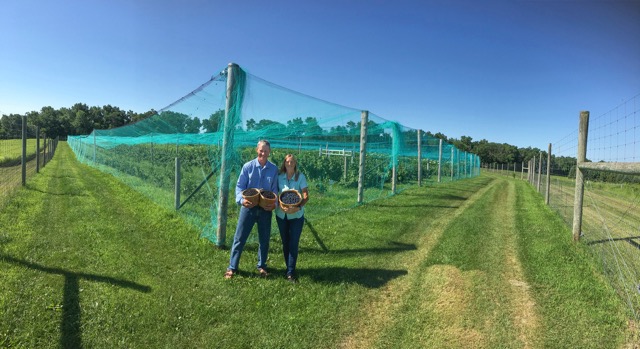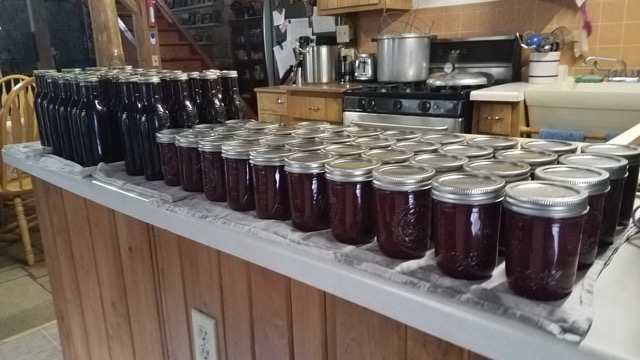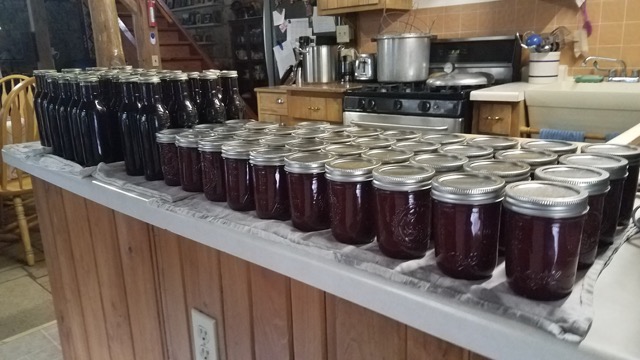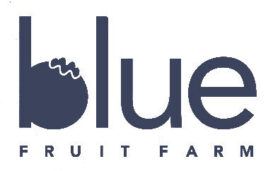Food Safety at Blue Fruit Farm
At Blue Fruit Farm, we grow health, raising fruits that are high in antioxidants, anthocyanins, and packed with flavor! Healthy food must be safe food, so we practice food safety every day. That is one of the main reasons we farm organically, because we do not want to contaminate the fruits we grow with harmful pesticides. We also practice Good Agricultural Practices (GAP) to prevent bacterial contamination.
Some of our food safety practices include:

- Overhead netting helps prevent bird droppings on shrubs and fruits.
- We harvest no fruits that have dropped to the ground.
- Hand washing is required before fruit harvest and packing.
- All harvest lugs and buckets are washed after each use.
- Food contact surfaces in our packing room are sanitized with hydrogen peroxide.
- All fruits are inspected, chilled, and stored in a walk-in cooler after harvest. Cooler temperature of 38-40 degrees F. is checked daily.
- To prevent the growth of pathogens, no water comes in contact with harvested fruit.
- We use no raw manure. Shrubs and trees are fertilized with farm-produced compost that is made according to National Organic Program compost requirements.
- Our farm has been managed organically since the 1970’s and our orchard is well isolated from sources of pesticide drift and other contaminants.

We maintain a Food Safety Plan in compliance with the Food Safety Modernization Act. Under our plan, we keep records of our food safety activities. We require our full-time employees to watch “Fruits, Vegetables, and Food Safety: Health and Hygiene on the Farm” video so they understand the importance of food safety and good practices to prevent contamination. People who help us harvest fruits are trained in good hand washing and harvesting techniques.
Jim Riddle (registration # 20189693), Joyce Ford (registration # 20189694), Ben McAvoy (registration # 20228894), and Natalie McAvoy (registration # 20228812) are registered MN Cottage Food Producers in order to sell jams and juices direct to customers. As registered Cottage Food Producers, we have taken MN Department of Agriculture’s (MDA) online food safety training. Joyce has also taken food safety training with the MN Extension.
The jams, jellies, and juices we sell are processed in our home kitchen, which is not licensed by the State of Minnesota. We follow MDA guidelines for processing jams and juices. All our fruit products are less than 4.6 pH, minimizing the risk of bacterial contamination. All our fruit products are made in small batches, using stainless steel (SS) equipment.

We maintain a Food Safety Plan in compliance with the Food Safety Modernization Act. Under our plan, we keep records of our food safety activities. We require our full-time employees to watch “Fruits, Vegetables, and Food Safety: Health and Hygiene on the Farm” video so they understand the importance of food safety and good practices to prevent contamination. People who help us harvest fruits are trained in good hand washing and harvesting techniques.
Jim Riddle (registration # 20189693), Joyce Ford (registration # 20189694), Ben McAvoy (registration # 20228894), and Natalie McAvoy (registration # 20228812) are registered MN Cottage Food Producers in order to sell jams and juices direct to customers. As registered Cottage Food Producers, we have taken MN Department of Agriculture’s (MDA) online food safety training. Joyce has also taken food safety training with the MN Extension.
The jams, jellies, and juices we sell are processed in our home kitchen, which is not licensed by the State of Minnesota. We follow MDA guidelines for processing jams and juices. All our fruit products are less than 4.6 pH, minimizing the risk of bacterial contamination. All our fruit products are made in small batches, using stainless steel (SS) equipment.
